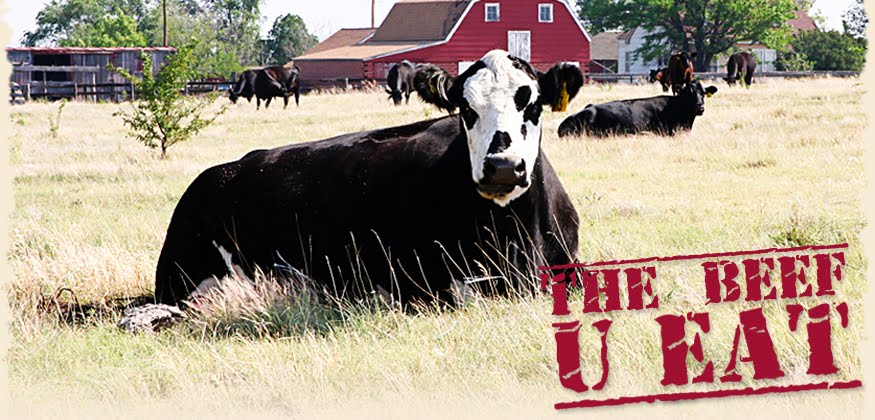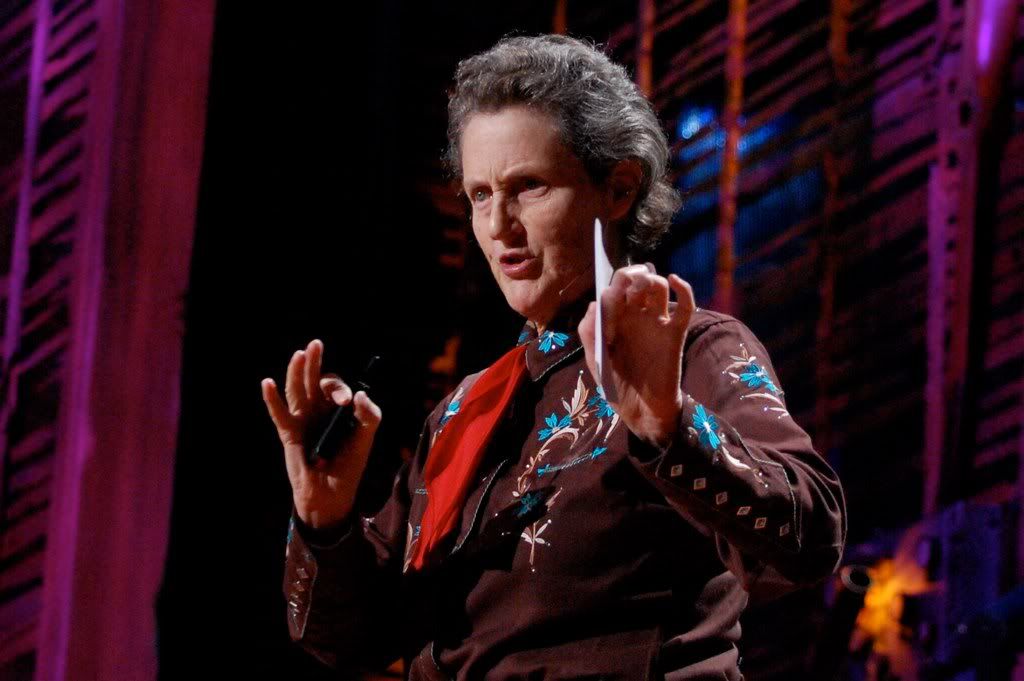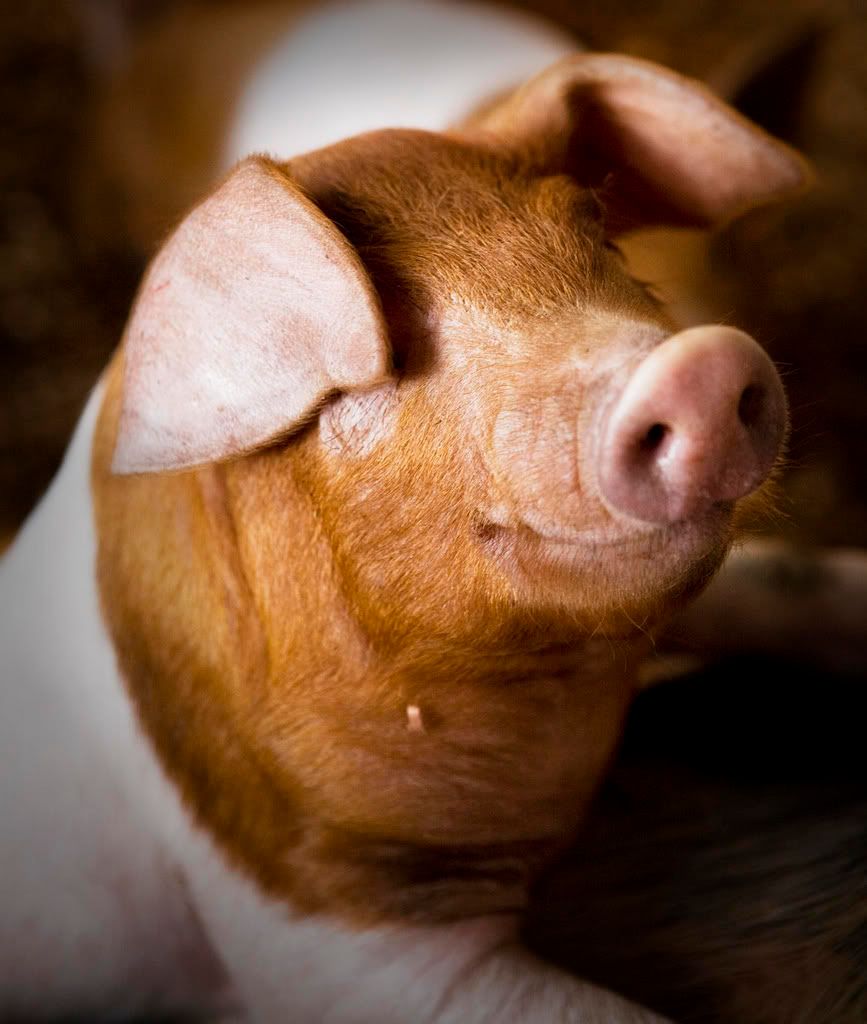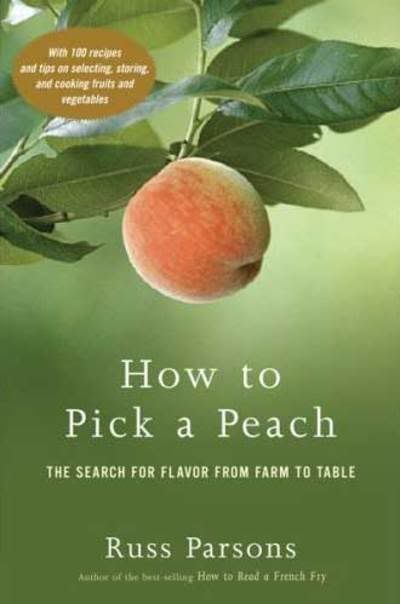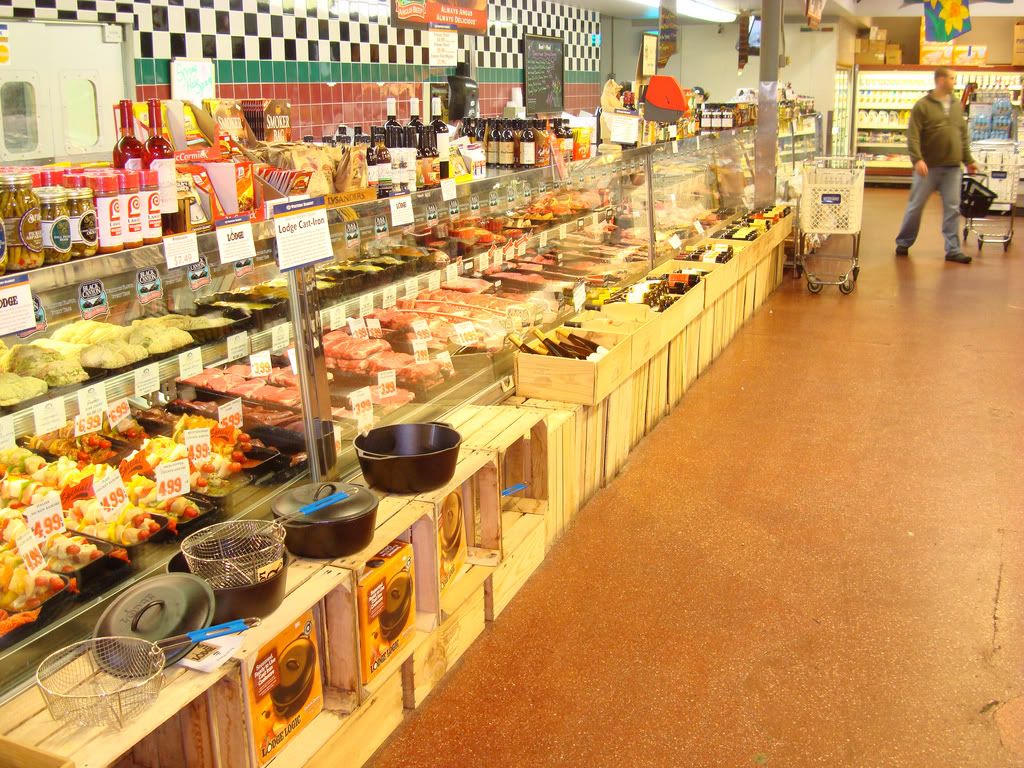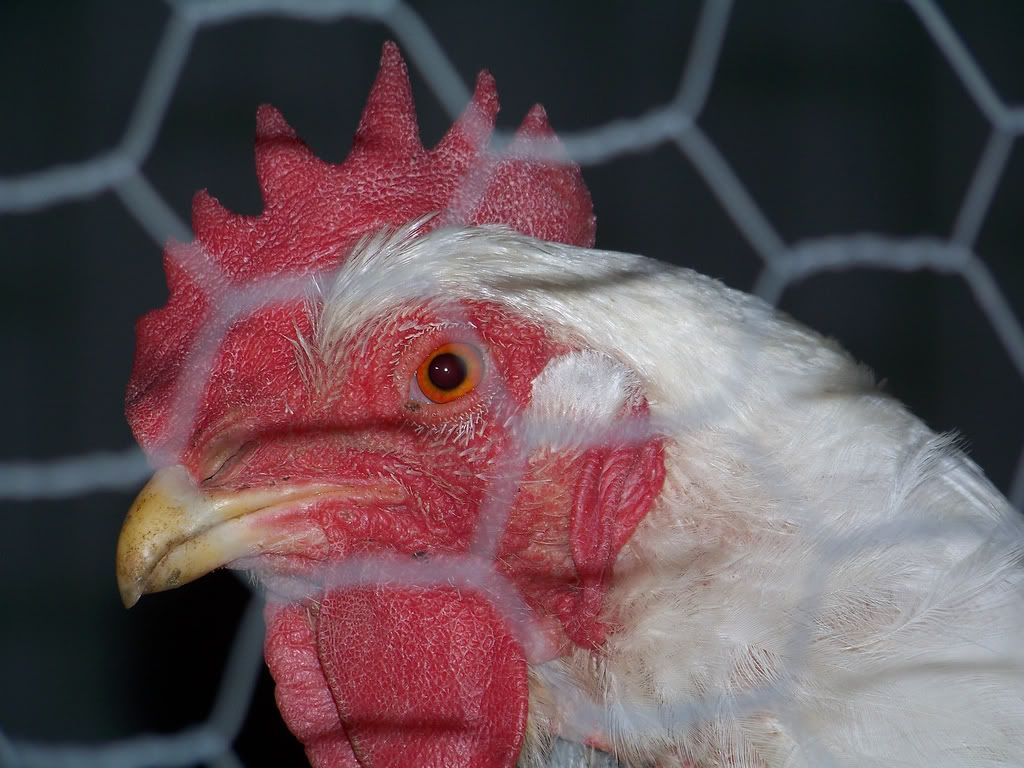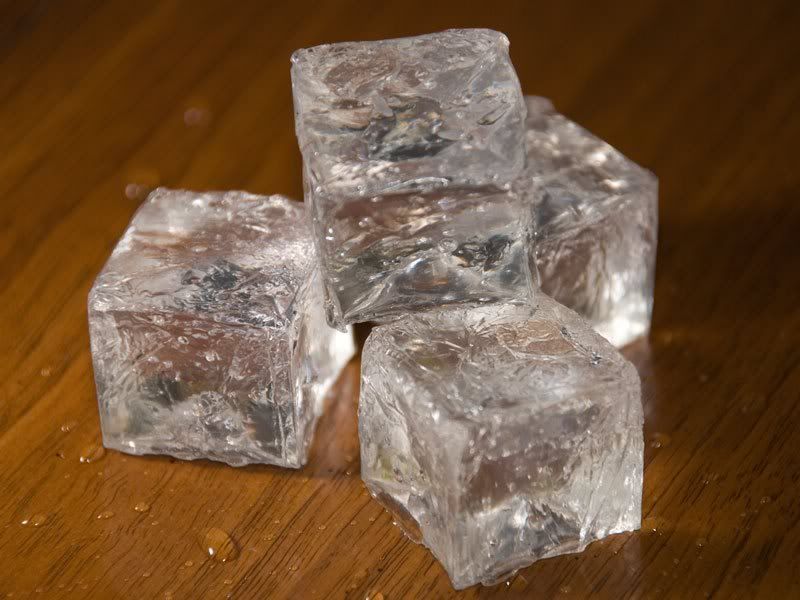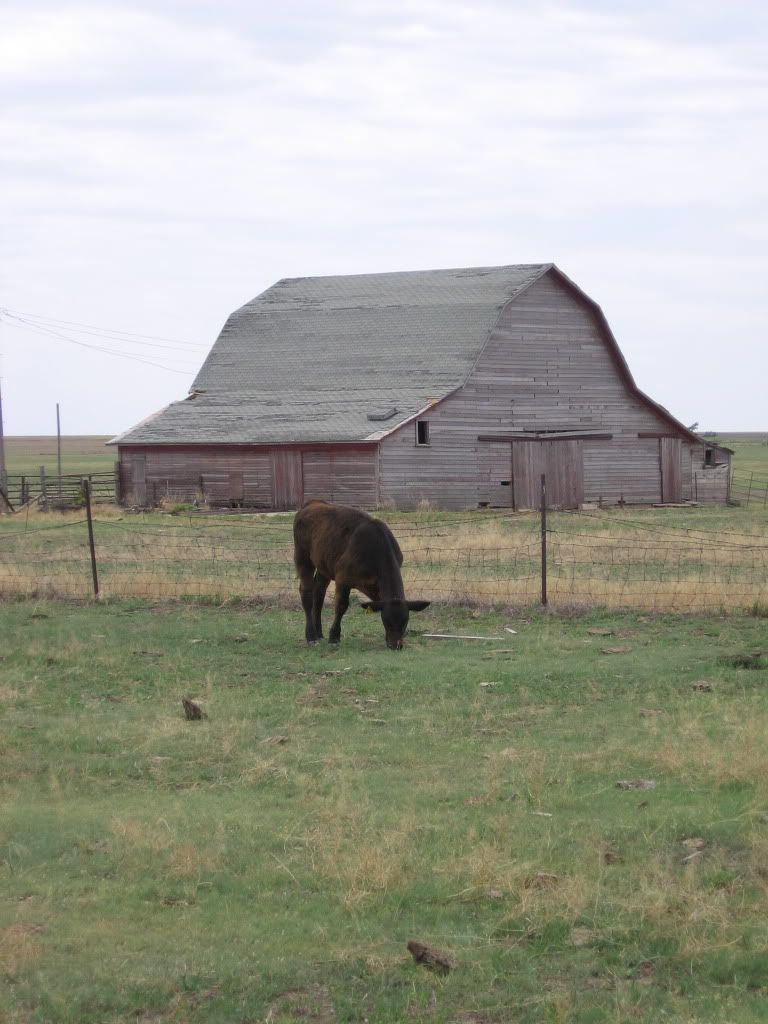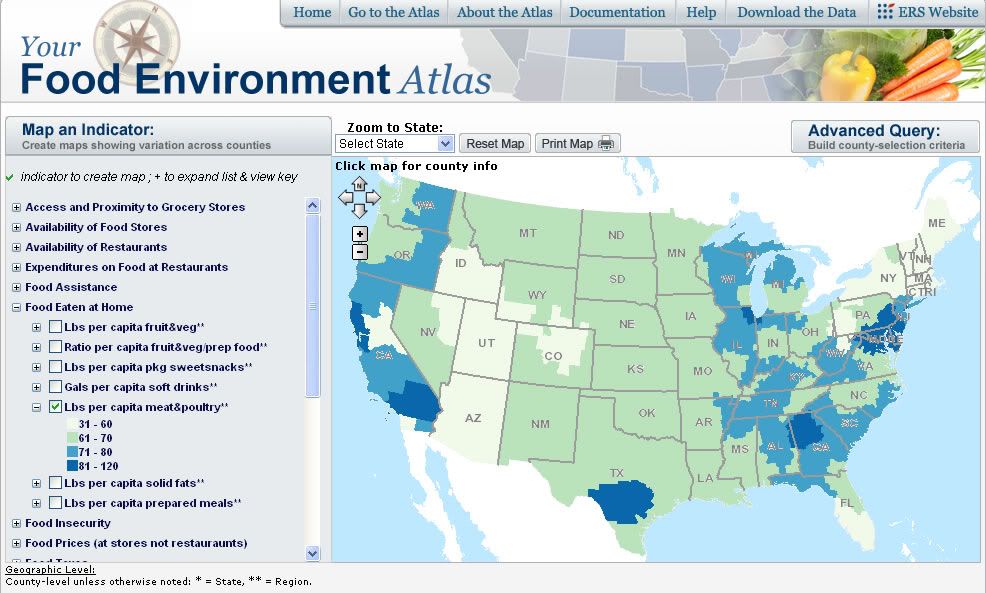My favorite college course was Animal Issues and Welfare. There were a number of memorable experiences in the class, and meeting Dr. Temple Grandin was certainly one of them.
I can remember sitting on the edge of my seat listening to every word. We listened as she described her challenges with autism, highlighted her philosophies on animal behavior and handling, and encouraged us as we analyzed some of the agricultural industry's biggest challenges.
Wednesday, July 21, 2010
Monday, July 19, 2010
Reusable Grocery Bags Contaminated With E. Coli, Other Bacteria
 EDITORS NOTE: Being green isn't just something that happens on the farm, my wife and I also champion the same green efforts of our more urban friends. We recycle all of our paper, cardboard, tin and alumninum cans, glass, and plastic bags. A few years ago, we also started using reusable grocery bags. The University of Arizona report below opened my eyes, and I thought I needed to share this with my food-focused friends. I'll be washing our reusable grocery bags this week.
EDITORS NOTE: Being green isn't just something that happens on the farm, my wife and I also champion the same green efforts of our more urban friends. We recycle all of our paper, cardboard, tin and alumninum cans, glass, and plastic bags. A few years ago, we also started using reusable grocery bags. The University of Arizona report below opened my eyes, and I thought I needed to share this with my food-focused friends. I'll be washing our reusable grocery bags this week.The study Assessment of the Potential for Cross Contamination of Food Products by Reusable Shopping Bags (PDF) randomly tested reusable grocery bags carried by shoppers in Tucson, Los Angeles and San Francisco. The study also found consumers were almost completely unaware of the need to regularly wash their bags.
Wednesday, July 14, 2010
National Academy of Sciences Releases Sustainable Agriculture Report
On June 29, the National Academy of Sciences released the report Toward Sustainable Agricultural Systems in the 21st Century. It highlights the extreme challenges American farmers face feeding the world. The report does a great job summarizing the enormous task facing farmers today.
Toward Sustainable Agricultural Systems in the 21st Century is available in different formats depending you your preference. You can purchase the report as a hardcopy of PDF, download a brief of the report, download an executive summary or scroll down the page a bit. You will find an option to read the report page by page.
I chose to read the news release and scanned the summary, brief and full report. Below are a few paragraphs from the new release.
"Although farming productivity has increased, nowadays farmers are being asked to do more than produce more food for a growing world population," said Julia Kornegay, chair of the committee that wrote the report, and professor and head of the department of horticultural science at North Carolina State University, Raleigh. "Many modern agricultural practices have unintended negative consequences, such as decreased water and air quality, and farmers have to consider these consequences while trying to increase production. If farmers are going to meet future demands, the U.S. agriculture system has to evolve to become sustainable and think broadly -- past the bottom line of producing the most possible."
Monday, July 5, 2010
I Couldn't Have Said It Better
Sometimes people outside of farming are much better about telling agriculture's story than people that live there everyday. A trip I took the last week in June couldn't have illustrated that point any better.
I traveled to Lubbock, Texas, organizing a one-day conference on sustainable agriculture production. It featured some great speakers, and I hope to share their presentations with you soon. The people I met traveling between Manhattan, Kansas, and Lubbock couldn't have been more different.
I traveled to Lubbock, Texas, organizing a one-day conference on sustainable agriculture production. It featured some great speakers, and I hope to share their presentations with you soon. The people I met traveling between Manhattan, Kansas, and Lubbock couldn't have been more different.
Sunday, June 20, 2010
Celebrity Spotlight - Russ Parsons "The Californian Cook"
It's not everyday that you will find a West Coast chef that is willing to go to bat for modern agriculture. Russ Parsons, the Los Angeles Times food editor known as "The Californian Cook," is one of the best friends agriculture could have in a farm-removed market.
Take some time and check out his work at the Los Angles Times. One of the first articles I read from Parsons was The facts about food and farming. This article alone was enough to make me consider this guy as the next TheBeefUEat.com Celebrity Spotlight, but it gets better.
Take some time and check out his work at the Los Angles Times. One of the first articles I read from Parsons was The facts about food and farming. This article alone was enough to make me consider this guy as the next TheBeefUEat.com Celebrity Spotlight, but it gets better.
Wednesday, June 16, 2010
How to Talk to a Consumer
How many of you know how to pick the perfect cut of beef for your meals but never offer your expertise to consumers at the meat case?
I pride myself on being handy, thrifty, and in general, a pretty good consumer, especially when it comes to beef. However, I'm not as good at sharing my tricks with others, and it's a shame. In a society that's consumer driven, we need smarter consumers.
The main reason for starting this blog was to help everyone be better beef consumers and advocates, and that starts with changing my attitude.
I pride myself on being handy, thrifty, and in general, a pretty good consumer, especially when it comes to beef. However, I'm not as good at sharing my tricks with others, and it's a shame. In a society that's consumer driven, we need smarter consumers.
The main reason for starting this blog was to help everyone be better beef consumers and advocates, and that starts with changing my attitude.
Wednesday, June 2, 2010
You Aren't a Farmer Without a Farm
I am old enough to know that sometimes you need to step back from life's chaos and simply focus on your priorities. Last month was one of those moments, and unfortunately, that meant letting the blog go idle for a few weeks.
My biggest priority was family with the passing of my grandfather on April 24. It's been more than a month since his funeral, and I still struggle to describe him to friends that never met the man. The funny thing is I can't talk about him without talking about his farm. The two topics are inseparable.
My biggest priority was family with the passing of my grandfather on April 24. It's been more than a month since his funeral, and I still struggle to describe him to friends that never met the man. The funny thing is I can't talk about him without talking about his farm. The two topics are inseparable.
Thursday, April 22, 2010
Celebrate Earth Day!
Today, we are celebrating Earth Day for the 40th consecutive year. My family will join more than 800,000 farmers and ranchers in celebrating this day like we do every other, by raising food responsibly to feed the world.
Farmers and ranchers represent America’s first environmentalists. They are charged with the responsibility of using the earth’s limited resources wisely. For many farm families, they have been doing exactly this for generations that go back to the founding of our country.
Farmers and ranchers represent America’s first environmentalists. They are charged with the responsibility of using the earth’s limited resources wisely. For many farm families, they have been doing exactly this for generations that go back to the founding of our country.
Saturday, April 10, 2010
It's Hot Dog Season
Last night, I attended a K-State baseball game to mark my first of what is sure to be many innings of baseball watched and hot dogs consumed over the next 6 months. I love baseball and ballpark food. Supposedly, I'm not alone. Americans love hot dogs.
The fun folks at the National Hot Dog & Sausage Council dug up some great facts on America's obsession with hot dogs and baseball. Here are some neat hot dog facts for you to chew on.
The fun folks at the National Hot Dog & Sausage Council dug up some great facts on America's obsession with hot dogs and baseball. Here are some neat hot dog facts for you to chew on.
Wednesday, April 7, 2010
It's Time to Defend the Poultry Industry
You're probably reading the title of this post and asking yourself, "Why is a beef-loving farm boy talking about chickens?" Some of you are probably convinced I fell of my rocker, but follow me for a second. I have a reason for my madness, but let me start off with a few quick apologies.
First, I'm sorry it has been a while since my last post. Graduate school has been a bit chaotic lately, and the blog had to take a back seat to bigger priorities and values for a few days. The good news is the spring semester is almost over, and personal time will be more plentiful soon. Hopefully I can keep the delays to a minimum until May 15.
Also, before I dig into this topic, I need to get something off of my chest. I'm a closet poultry expert. Yep, it's true. In 2003, I was the FFA's third best poultry evaluator in the nation. I traveled throughout the state of Kansas touring hatcheries, egg laying operations and broiler houses.
I've actually cut up a whole chicken into all the little pieces you buy at the grocery store. I can tell about all the things that go into egg grading and share how differences in lighting, moisture and litter can affect the welfare of chickens. Plain and simple, I know a little bit about the poultry industry.
First, I'm sorry it has been a while since my last post. Graduate school has been a bit chaotic lately, and the blog had to take a back seat to bigger priorities and values for a few days. The good news is the spring semester is almost over, and personal time will be more plentiful soon. Hopefully I can keep the delays to a minimum until May 15.
Also, before I dig into this topic, I need to get something off of my chest. I'm a closet poultry expert. Yep, it's true. In 2003, I was the FFA's third best poultry evaluator in the nation. I traveled throughout the state of Kansas touring hatcheries, egg laying operations and broiler houses.
I've actually cut up a whole chicken into all the little pieces you buy at the grocery store. I can tell about all the things that go into egg grading and share how differences in lighting, moisture and litter can affect the welfare of chickens. Plain and simple, I know a little bit about the poultry industry.
Saturday, March 27, 2010
Blown Away By the Climate Change Debate
Is global climate change real? I don't know for certain, but I am definitely a skeptic. In my opinion, a group of neglected climatologists started looking for juicy gossip to breathe new life in the profession. They threw out a bunch of ideas, and climate change seemed intriguing.
Climate change has been a trendy topic in the early 2000s, but I can't see the argument adding up to much.
For starters, the debate is championed by the same goofball that said he invented the Internet. Second, I have spent a good portion of my life outdoors, and weather seems to be a zero-sum game. Some years are warmer and some are cooler, but in all, I'm not trading in my coveralls for t-shirts. Then, climategate only deepened my suspicions.
I don't believe the ocean caps are turning to mush, polar bears are going extinct and the the world is melting. Could it happen? Absolutely. Does my disbelief make me an evil, earth-destroying heathen? I don't think so. I simply think the debate is irrational.
Farmers and ranchers are some of the world's best conservationists. Caring for the land and animals they raise is essential to productivity, but good stewardship is more just a profit motive. It's woven in the fabric of rural America. Producers don't take their responsibility lightly.
Climate change has been a trendy topic in the early 2000s, but I can't see the argument adding up to much.
For starters, the debate is championed by the same goofball that said he invented the Internet. Second, I have spent a good portion of my life outdoors, and weather seems to be a zero-sum game. Some years are warmer and some are cooler, but in all, I'm not trading in my coveralls for t-shirts. Then, climategate only deepened my suspicions.
I don't believe the ocean caps are turning to mush, polar bears are going extinct and the the world is melting. Could it happen? Absolutely. Does my disbelief make me an evil, earth-destroying heathen? I don't think so. I simply think the debate is irrational.
Farmers and ranchers are some of the world's best conservationists. Caring for the land and animals they raise is essential to productivity, but good stewardship is more just a profit motive. It's woven in the fabric of rural America. Producers don't take their responsibility lightly.
Tuesday, March 23, 2010
Who Made Celebrities Food Experts?
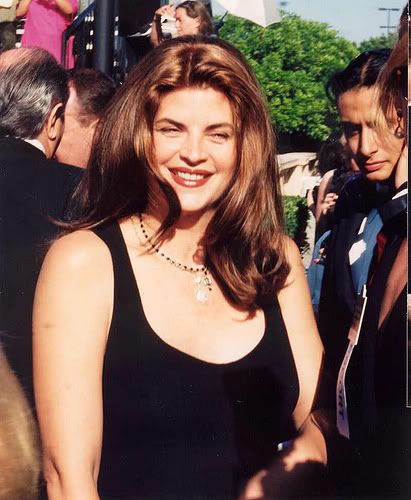 A weekend of great March Madness action was interrupted on Sunday with a television commercial about the latest entertainment endeavor by actress Kirstie Alley. The new A&E show Kirstie Alley's Big Life will focus on the actress's struggles with losing weight and keeping it off.
A weekend of great March Madness action was interrupted on Sunday with a television commercial about the latest entertainment endeavor by actress Kirstie Alley. The new A&E show Kirstie Alley's Big Life will focus on the actress's struggles with losing weight and keeping it off.I was disturbed as the commercial made wisecracks at the expense of a serious problem in Alley's life, and the lives of many others -- the struggle to make healthy food and lifestyle choices.
The discomfort hit a new level when I read about Alley's recent comments on The Late Show with David Letterman on Monday morning:
Labels:
food debate,
healthy choices,
Kirstie Alley
Saturday, March 20, 2010
Forbes Magazine Offers Agricultural Insight
When mainstream American media offer consumers enlightening articles about farming and food choices, it's a boost to family farms and agriculturalists everywhere. Let's face it. Non-farm voices offer more credibility to the farm and food debate, and Forbes deserves a hat tip from us farm folks.
FARMER TALK NOTE: A hat tip is a Western gesture of tipping the brim of your cowboy hat in respect of another person. It's often interpreted as a general hello, acknowledgement of respect or thank you for a job well done.
In the last two months, the magazine has published two great articles. One summarizes the food debate's effect on American agriculture. The other highlights healthy foods that don't have to break the bank. As a farm boy that is going back to college, you can understand why these articles caught my eye.
FARMER TALK NOTE: A hat tip is a Western gesture of tipping the brim of your cowboy hat in respect of another person. It's often interpreted as a general hello, acknowledgement of respect or thank you for a job well done.
In the last two months, the magazine has published two great articles. One summarizes the food debate's effect on American agriculture. The other highlights healthy foods that don't have to break the bank. As a farm boy that is going back to college, you can understand why these articles caught my eye.
Friday, March 19, 2010
UPDATE -- HSUS is in Agriculture's Crosshairs
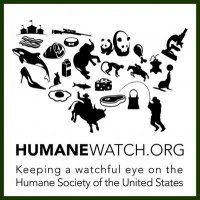 The Humane Society of the United States is finding out producers and consumers don't like being deceived. Farmers and ranchers have used social media to tell the anti-animal agriculture organization "we're mad as heck and not going to take it anymore!"
The Humane Society of the United States is finding out producers and consumers don't like being deceived. Farmers and ranchers have used social media to tell the anti-animal agriculture organization "we're mad as heck and not going to take it anymore!"In a post earlier this week, I shared the progress being made in sharing the truth about the HSUS. Well, the efforts to expose this wolf in sheep's clothes continue to take on a life of their own.
Thursday, March 18, 2010
Celebrity Spotlight - Shaun White Names Tricks After Steaks
When it comes to snowboarding, no one doubts Shaun White's ability. It turns out the extreme sports athlete also has an extreme appetite for steak.
 The record setting Olympic athlete has a knack for beef and has named some of his most daring tricks after his favorite steaks.
The record setting Olympic athlete has a knack for beef and has named some of his most daring tricks after his favorite steaks.
At the 2010 Winter Olympics, White already had the Half Pipe Final gold metal wrapped up with the score he recorded in the first run. With the second run serving as a victory lap, White landed the Double McTwist 1260, named the Tomahawk, with a record score of 48.4. The Tomahawk was inspired by an Aspen, Colorado, restaurant's signature steak.
 The record setting Olympic athlete has a knack for beef and has named some of his most daring tricks after his favorite steaks.
The record setting Olympic athlete has a knack for beef and has named some of his most daring tricks after his favorite steaks.
Labels:
Celebrity Spotlight,
Shaun White,
steaks
Wednesday, March 17, 2010
The Blog -- My New Farm Chore
It's been over a week since my first post, and friends and family have asked why I started a blog, especially in the midst of a crazy graduate school schedule. The answer is simple, "Consumers want to know more about agriculture, and I am equipped to share its message."
Today, I was pointed to a great University of Illinois blog entry titled What If We Awaken and There Are No More Farmers to be Found. It highlights the challenge of replacing America's aging farmers and the motivations leading my generation back to the farm. It also touches on one of the reasons I started this blog.
I grew up on a pretty typical western Kansas farm where the seasons were defined by the farm work.
Today, I was pointed to a great University of Illinois blog entry titled What If We Awaken and There Are No More Farmers to be Found. It highlights the challenge of replacing America's aging farmers and the motivations leading my generation back to the farm. It also touches on one of the reasons I started this blog.
I grew up on a pretty typical western Kansas farm where the seasons were defined by the farm work.
Monday, March 15, 2010
HSUS is in Agriculture's Crosshairs
Farmers and ranchers served notice to the Humane Society of the United States in November 2009 when voters overwhelmingly supported Issue 2 in Ohio. It was the first election victory for farmers and ranchers since the HSUS put animal agriculture in its crosshairs through state ballot initiatives.
 Keep in mind, HSUS is not a national organization representing your local humane society. That organization would be the American Humane Association. The HSUS operates on a number of fronts, but its largest effort is spent carrying out an anti-agriculture agenda, similar to that of the People for the Ethical Treatment of Animals.
Keep in mind, HSUS is not a national organization representing your local humane society. That organization would be the American Humane Association. The HSUS operates on a number of fronts, but its largest effort is spent carrying out an anti-agriculture agenda, similar to that of the People for the Ethical Treatment of Animals.
 Keep in mind, HSUS is not a national organization representing your local humane society. That organization would be the American Humane Association. The HSUS operates on a number of fronts, but its largest effort is spent carrying out an anti-agriculture agenda, similar to that of the People for the Ethical Treatment of Animals.
Keep in mind, HSUS is not a national organization representing your local humane society. That organization would be the American Humane Association. The HSUS operates on a number of fronts, but its largest effort is spent carrying out an anti-agriculture agenda, similar to that of the People for the Ethical Treatment of Animals.The Ohio election victory proved consumers would listen to grassroot producer efforts if they were in tune with consumer interests. In 2010, producers took the pursuit to the next level, and it appears the rest of America is receptive. For those of you out of the loop, here's a quick summary:
Saturday, March 13, 2010
Food Environment's Role in the Food Debate
A few weeks ago, I read about the USDA Economic Research Service's new Food Environment Atlas. Naturally, I was intrigued to see what it was all about. At first, I was a bit disappointed. The atlas didn't point me to the best steakhouses in a five mile radius. After spending a bit more time on the Web site, I was impressed.
The tool is insightful, and the site even offers raw data if you really want to play around. The ERS team pulled together 90 different county-level food statistics and put them in one place. You could probably spend a lifetime sifting through the raw data, but a quick glance at the maps can provide insight on the U.S. food environment.
The USDA's goal for the data is to stimulate research in the areas of food choice and diet quality and provide an overview of a community's ability to access healthy food choices.
Looking at a handful of the maps got me thinking a bit more about America's food environment. I understand the dangers in being oversimplistic in evaluating data, but the trends don't add up.
The tool is insightful, and the site even offers raw data if you really want to play around. The ERS team pulled together 90 different county-level food statistics and put them in one place. You could probably spend a lifetime sifting through the raw data, but a quick glance at the maps can provide insight on the U.S. food environment.
The USDA's goal for the data is to stimulate research in the areas of food choice and diet quality and provide an overview of a community's ability to access healthy food choices.
Looking at a handful of the maps got me thinking a bit more about America's food environment. I understand the dangers in being oversimplistic in evaluating data, but the trends don't add up.
Labels:
diabetes,
fat,
meat consumption,
obesity,
USDA
Thursday, March 11, 2010
The Sustainability Debate: You Don't Have to Pick Sides
The sustainability buzz has been growing for quite a while, and producers knew it was a matter of time before the conversation became more than just coffee shop fodder. Judging by the latest USDA programs, I'd say the discussion is front and center in agricultural circles.
FARMER TALK NOTE: If you don't understand the coffee shop comment, you're missing rural entertainment in its highest form. Visit your local rural town coffee or breakfast stop and sit near the table with the men sporting dusty caps, Carhartt coats, and cowboy boots and hats.
Recently, the USDA launched the Know Your Farmer, Know Your Food program, and it has been interesting to read the nation's perspective on the program.
Phillip Brasher's March 7 story in the DesMoines Register titled Some fret about push for smaller farm sizes shared some advantages of this new initiative. I'm not a public policy expert, but on the surface, it appears the program gives niche producers a foundation to work from while helping consumers learn a bit more about local food options.
FARMER TALK NOTE: If you don't understand the coffee shop comment, you're missing rural entertainment in its highest form. Visit your local rural town coffee or breakfast stop and sit near the table with the men sporting dusty caps, Carhartt coats, and cowboy boots and hats.
Recently, the USDA launched the Know Your Farmer, Know Your Food program, and it has been interesting to read the nation's perspective on the program.
Phillip Brasher's March 7 story in the DesMoines Register titled Some fret about push for smaller farm sizes shared some advantages of this new initiative. I'm not a public policy expert, but on the surface, it appears the program gives niche producers a foundation to work from while helping consumers learn a bit more about local food options.
Wednesday, March 10, 2010
Celebrity Spotlight - Mike Rowe Supports American Farmers
I get excited every time I hear a front-and-center celebrity stand up for a cause that I support. Mike Rowe, the host of the television show Dirty Jobs, is a guy worth getting excited about.
Not only does his show Dirty Jobs highlight the occasional agricultural industry, but earlier this year, Rowe had a guest contributor write about his concerns with American agriculture on his Web site www.mikeroweworks.com/. The article gets a bit long for my tastes, but it's worth the read.
Not only does his show Dirty Jobs highlight the occasional agricultural industry, but earlier this year, Rowe had a guest contributor write about his concerns with American agriculture on his Web site www.mikeroweworks.com/. The article gets a bit long for my tastes, but it's worth the read.
Labels:
Celebrity Spotlight,
Dirty Jobs,
Mike Rowe
Saturday, March 6, 2010
The First Post - Time to Kick the Tires
Welcome to TheBeefUEat.com! Chances are you either tripped across this site randomly or you decided I might actually have something useful to say as a blog writer.
Over the next few weeks, I plan on sprinkling in bits and pieces about why I started TheBeefUEat.com and what you can expect as a reader. Here are a few fundamental goals for this blog, and I encourage you to hold me accountable:
Over the next few weeks, I plan on sprinkling in bits and pieces about why I started TheBeefUEat.com and what you can expect as a reader. Here are a few fundamental goals for this blog, and I encourage you to hold me accountable:
- Keep it short and sweet. We are all faced with information overload. A goal of this blog is to provide you with the "big picture" to be ranch and consumer literate. If you feel like you need to do some homework, I'll provide links to help you sort out the details.
- Keep it civil. The great thing about America is we are all free to share our opinions and biases without serious attack. I want healthy discussion. If you have criticisms or compliments, share them. I might not agree with your opinions, but I'll respect you regardless.
- Keep informed. I have a journalism background, but don't confuse this site with pure journalism. I'll point to magazine articles and primary sources in nearly each entry. However, you should always treat a blog as more of an opinion editorial, not journalism.
- Keep promoting the positives of agricultural production. Whether you love working on a farm or consume its products, you deserve to be part of the discussion. Change isn't good or bad -- its reality. Let's discuss positive and realistic changes that need to happen to improve U.S. and world agriculture and its image around the world.
Subscribe to:
Posts (Atom)
